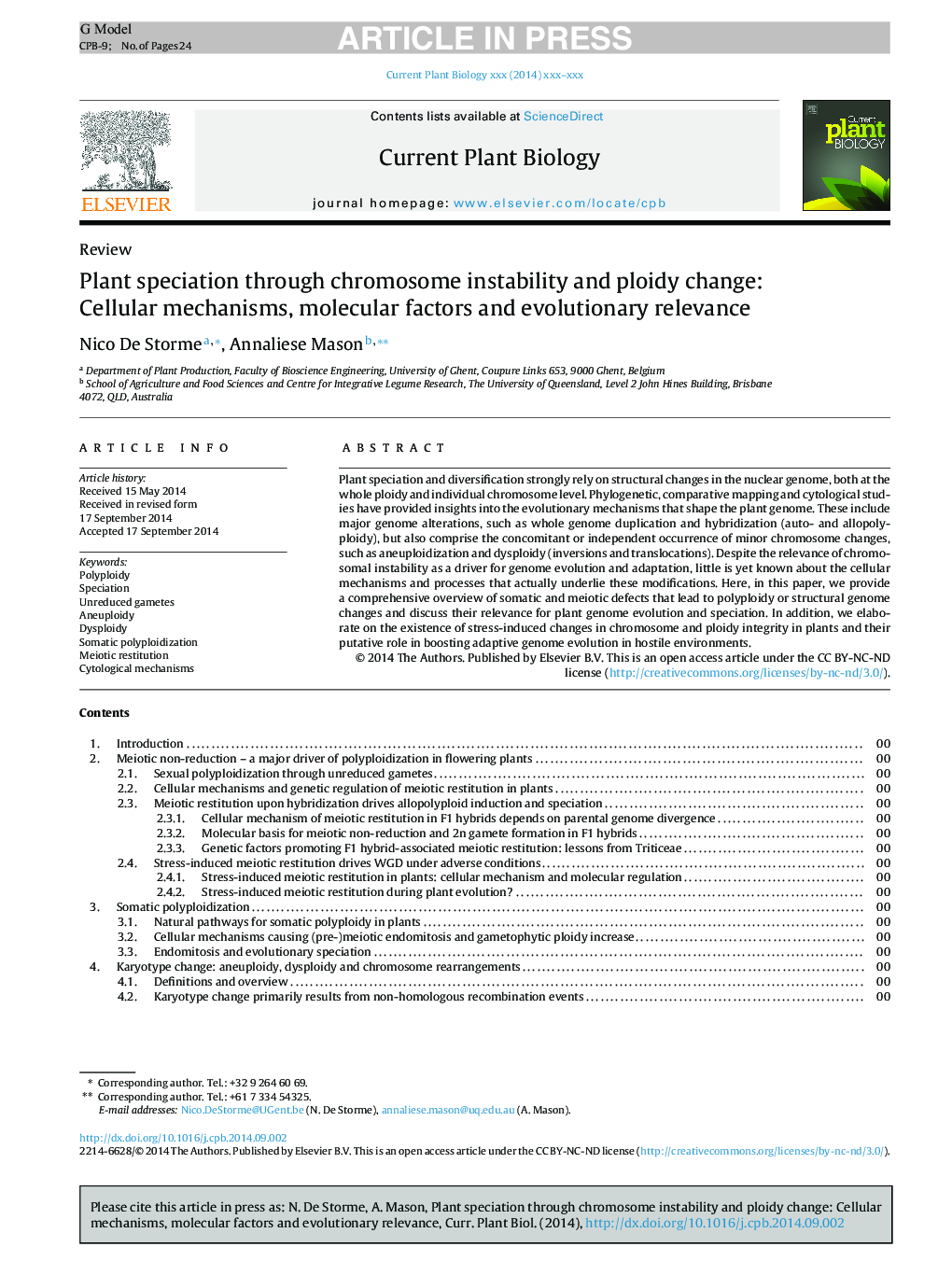| Article ID | Journal | Published Year | Pages | File Type |
|---|---|---|---|---|
| 571808 | Current Plant Biology | 2014 | 24 Pages |
Abstract
Plant speciation and diversification strongly rely on structural changes in the nuclear genome, both at the whole ploidy and individual chromosome level. Phylogenetic, comparative mapping and cytological studies have provided insights into the evolutionary mechanisms that shape the plant genome. These include major genome alterations, such as whole genome duplication and hybridization (auto- and allopolyploidy), but also comprise the concomitant or independent occurrence of minor chromosome changes, such as aneuploidization and dysploidy (inversions and translocations). Despite the relevance of chromosomal instability as a driver for genome evolution and adaptation, little is yet known about the cellular mechanisms and processes that actually underlie these modifications. Here, in this paper, we provide a comprehensive overview of somatic and meiotic defects that lead to polyploidy or structural genome changes and discuss their relevance for plant genome evolution and speciation. In addition, we elaborate on the existence of stress-induced changes in chromosome and ploidy integrity in plants and their putative role in boosting adaptive genome evolution in hostile environments.
Related Topics
Physical Sciences and Engineering
Chemical Engineering
Bioengineering
Authors
Nico De Storme, Annaliese Mason,
